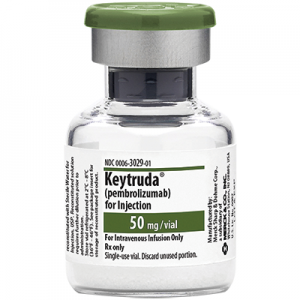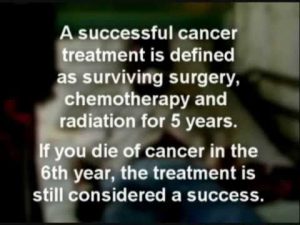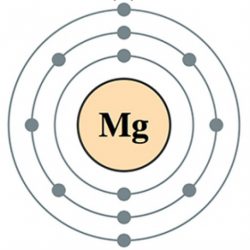 Why is the British public funding Cancer Research UK? Where is all that money going? What is your hard earned cash being used for? Donations you have given in good faith. Where is the promised cure that was given to us decades ago?
Why is the British public funding Cancer Research UK? Where is all that money going? What is your hard earned cash being used for? Donations you have given in good faith. Where is the promised cure that was given to us decades ago?
What happens to your donations?
Apart from paying wages and overheads, your donations will be used to help large pharmaceuticals like Merck and AstraZeneca. In effect, you are funding one of the richest industries in the world. As I see it, the only benefit for the ‘race for life’ run is that you’re exercising yourself, keeping yourself fit and having a good time with your friends and relatives whilst remembering lost loved ones to a disease that, supposedly, has no cure.
As for the money you accrue by doing that run, well heaven knows what it will end up funding. But be assured it will not be used as you would wish it and a pharmaceutical company will be getting the benefit of your generousity.
 Earnings of the CEO
Earnings of the CEO
By the way, the chief executive of Cancer Research UK, Sir Harpal Kumar, earns around £240,000 a year. Michelle Mitchell OBE has been appointed as CEO of Cancer Research UK, replacing Sir Harpal Kumar who is due to stand down in the summer of 2018. Personally, I think this is a wage not in keeping with the spirit of a charity. Half that amount would be plenty for most people. But that’s just my opinion.
What does CRUK do?
So, what does CRUK do? It does research and development (R&D) of possible viable cancer drugs. If a pharmaceutical company likes the look of the drug it will take over from Cancer Research UK with the view to making high profits from it.
 Keytruda for Instance
Keytruda for Instance
Take Keytruda for instance, which is made by Merck. Much of the initial R&D was done by CRUK. Merck liked the look of it and decided to take over. It had good potential. Potential for what you might ask. Potential for big profits that’s what! This particular drug, has many unpleasant side effects and has an information sheet which is 53 pages showing just the ‘highlights’ according to its heading. By the way, this is not the information leaflet the patient receives.
What the doctor has to do
There are numerous side effects and contra indiciations that the prescribing doctor has to watch out for. Doctors have enough to do without ploughing through 53 pages of instructions about contra indications he has to control. What if the patient doesn’t realize a side effect is from his medication? Most patients just accept they will feel ill from medication. How can a doctor keep tabs on all his cancer patients who will likely have different side effects?
different side effects?
As a result, I would suggest that it is impossible to expect a medic to be in control of all the drugs he prescribes. It is a recipe for disaster, and many patients die from prescription medicine. The third leading cause of death in the US is from iatrogenic causes. I don’t know the figure for Europe or the UK.
And how much does this cancer drug cost?
Incidently, how much does this drug cost? Keytruda costs about $12,500 a month, or $150,000 a year. Is it worth it? Well you decide after reading the side effects. That’s if you have the time to go through the whole information sheet.
Cancer Research UK – modus operandi
 Dr Nigel Blackburn, Cancer Research UK’s director of drug development explains: “The basic framework is zero cost upfront to the partner {the pharmaceutical company}. We then will develop a program of work, there’s then an opt-point, normally at the end of Phase Ia but sometimes Phase Ib, and they get to review all the data and decide if they want to license it from us; there’s then normally payment to license it from us but it tends to be pretty modest at that stage – we tend to back-end things more; and then look for milestones, through Phase II and III, and then royalties if a product reaches the market.”
Dr Nigel Blackburn, Cancer Research UK’s director of drug development explains: “The basic framework is zero cost upfront to the partner {the pharmaceutical company}. We then will develop a program of work, there’s then an opt-point, normally at the end of Phase Ia but sometimes Phase Ib, and they get to review all the data and decide if they want to license it from us; there’s then normally payment to license it from us but it tends to be pretty modest at that stage – we tend to back-end things more; and then look for milestones, through Phase II and III, and then royalties if a product reaches the market.”
“The commercial sector is all about returning a profit for shareholders, or return investments for venture capital for early-stage companies and such like. I’ve worked in the commercial sector for 30 years and it does lead you towards certain decisions – ultimately you’ve got to make sales, you’ve got to make a profit, you’ve got to keep shareholders happy – and it shapes decisions in a certain way.”
What a revealing statement!
I don’t like this statement, it implies that money is more important than the health of the people… you know, those people that keep these large consortiums in business. I can remember reading about an interview with a pharma industry analyst, he said:
“When conducting drug clinical trials, we are concerned about two disasters: One disaster is that you kill people. The other disaster is that you cure them. The truly good drugs are ones that you can use for a long time…”
Very generous of you and CRUK!

Hence this looks like a very good deal for the pharmaceutical company involved. They have no risk and much of the donkey work is done by CRUK. If they don’t like the outcome of CRUK’s research, or can see no decent profits from marketing the drug, they just walk away. In other words, pharmaceuticals are looking for a drug that they can keep selling to the patient year on year, not a cure. A cure for cancer would give them high profits briefly, but once the public had been cured, what happens to all the sales of cancer drugs and treatments? Oh, and I forgot, what happens to the poor, poor shareholders!!
Does this help the patient?
So how does this help the patient? We are all looking for a cure for this dreaded disease from the likes of CRUK. Patients get at best, a stay of execution. Once any remission reaches 5 years, it is called a success. No matter if the patient dies a day, a month or a year after that cut off point, statistically the patient is cured. After 10 years, your doctor may say you are cured, but statistics are the figures your doctor will give you when you ask about the likelihood of a cure.
 Cancer Research UK website
Cancer Research UK website
As a point of interest, this is what CRUK put on their website: “Most cancers that are going to come back will do so in the first 2 years or so after treatment. After 5 years, you are even less likely to get a recurrence. For some types of cancer, after 10 years your doctor may say that you are cured.”
Real survival rates from chemotherapy
These are the real survival rates according to research “The contribution of cytotoxic chemotherapy to 5-year survival in adult malignancies”:
-
- The overall contribution of curative and adjuvant cytotoxic chemotherapy to 5-year survival in adults was estimated to be 2.3% in Australia and 2.1% in the USA.
- When one of the authors of this study was approached about the change in these figures to reflect todays rates he reported that there was no change. The above study was done in 2004. Check out the 5 minute video about chemotherapy in the US.
It’s the uncertainly that blights your life
Consequently, with a cure, you have a future. You know you are cured and you can live out the rest of your life being healthy and enjoying your good health. But with the uncertainty and fear that your cancer may return, your life is blighted. Some have problems carrying on with life and making new plans for the future. As a result, depression and unhappiness is very common. Also many patients have a change of personalty and mentality because of this constant worry.
Drugs are not the answer
This is not a cure. Drugs are not the answer. A change of lifestyle and I don’t mean just the patient, I mean the food manufacturers, the chemical industry, the pharmaceutical industry, the government and their corrupt agencies. All those that make a fortune out of other peoples’ misery and death, they’re the ones that need to change their modus operandi.
 So, in part two we will look at the trustworthiness of the pharmaceutical industry and what some eminent professionals say about their fraud and illegal practices.
So, in part two we will look at the trustworthiness of the pharmaceutical industry and what some eminent professionals say about their fraud and illegal practices.
Are there doctors out there curing cancer without traditional treatments… you betcha!
Spread the word!


you say there are doctors out there curing cancer without traditional treatments.
thats interesting I had a buddy of mine telling me the same thing.
he told me about a lady in Canada who was helping people cure their cancer with herbal formulas.
unfortunately, he says she was shut down by the government.
I wonder if we’ll ever get rid of cancer for good…
Hi there Mohamed and thanks for your comment. I think it won’t be too long before those with serious diseases like cancer start to look elsewhere for treatments. Especially as the available allopathic treatment, particularly for cancer is so brutal. Those that take a step back when diagnosed with this disease and look at alternatives are realizing that their quality of life whilst being treated is good and the support from these clinics are profound.
There are so many different ways to treat cancer other than chemo, radio and surgery. We were born with the nutrients we need to have a healthy body. To introduce poisonous man made drugs instead of using treatments that the body naturally needs, is madness to me. I personally would never have chemo or radiotherapy if I was unfortunate enough to get cancer. I would choose high dose vitamin C for starters and then hit the disease with all the known alternatives that have been successful, including the correct diet.
Thanks for taking the time to write this article.
I’ve always believed that Not for profit charities should be completely transparent about how their donations have been used. I find it shocking to think that CRUK spend donations on drug research that they hand over to Big Pharma, to profit heavily from. Of course Big Pharma, are not in the business of curing cancer, because that would completely put them out of business!
I’d like to see the emphasis for Cancer Research into complete lifestyle modifications and accepting that we can prevent cancer with healthier diets, supplementation, exercise, low stress and decrease in toxic exposure.
Hi there OCTeam and how right you are about transparency of the usage of donations. The sad thing about it is there are many cancer treatments that embrace natural therapies. High dosage vitamin C, which I will be talking about in part 2, cannabis oil, which has had some amazing results for patients with cancer and other serious diseases. These treatments are being hidden from the public and vilified by pharmaceutical lobbyists to boot.
I found this news item this morning, which absolutely incensed me. This is a typical example of the greed and stupidity of our NHS here in the UK. It’s all to do with money that this talently optician has been struck off. All he has done is improve the quality of life for autistic and brain damaged patients. He didn’t even charge for the service. He is now out of a job and cannot find work anywhere as an optician. His life has been ruined by these autocrats.
This is how the medical industry is progressing and it’s not a pretty sight. In fact it’s turning out to be down right dangerous! This ground breaking treatment is now being denied to autistic and brain damaged patients and it’s a travesty!